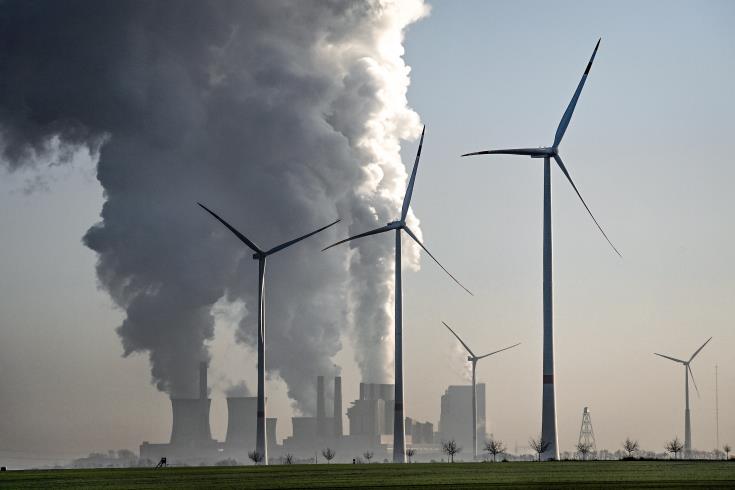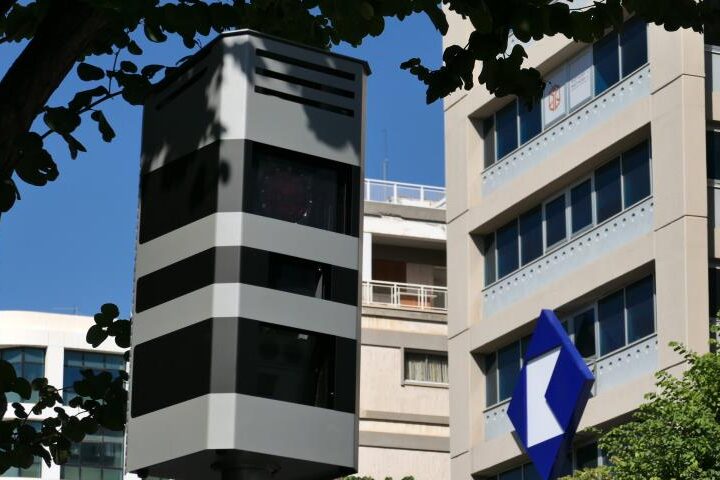Consumers have paid €570 mln between 2017 and October 2022 due to the Electricity Authority of Cyprus’ failure to switch to renewable energy and misuse of the European Emissions Trade Scheme, an Audit Office report found.
The Audit Office urged authorities to take action, considering the need to relieve the effects of climate change and reduce state spending on soaring fines.
“The (state) revenue from selling its emission rights for 2022 is almost as much as the period 2012-2020, which demonstrates the importance of the observed increase in revenues and the growing need for their rational management,” notes the report.
Earlier, the EAC said it paid €248 mln last year for greenhouse emissions rights, with the penalty rolled down to consumers.
The EAC believes the amount will be €283 mln this year, while Energy Minister George Papanastasiou expects the penalty to be €300 mln.
In comments to the Financial Mirror, Audit Officer Marios Petrides said Cyprus will fall off the path to reaching its 2030 goals to reduce its greenhouse gas emissions by at least 55% by 2030 (compared to 1990) and achieve climate neutrality by 2050.
“Despite Cyprus reaching its greenhouse gas reduction targets for 2013-2020, within the agreed EU framework, however, an increase in the past five years has dangerously brought the country close to missing its targets,” said Petrides.
As reported by the Audit Office, the authorities were forced to buy more emissions rights than those attributed to Cyprus in 2017-2022.
They could do so, as in the previous years, because Cyprus used fewer rights.
“Regarding 2021, Cyprus had higher GHG emissions than the defined allowance limits, while over time, during 2013-2021, Cyprus showed a gradual increase in actual GHG emissions.
“At the same time, at the European level, there was a significant decrease, which raises questions about whether Cyprus’ goals were achieved most efficiently,” said the Audit Office.
The report noted that GHG emissions from electricity production during 2013-2021 showed an increase of approximately 6%, despite that at the European level, they showed a decrease of 45%.
The largest part of GHG emissions from facilities included in the ETS sectors comes from producing electricity with conventional fuels, which accounts for approximately 70% of the total GHG emissions produced by all facilities at the state level.
Auditors found the state has not allocated income from the emission ‘fines’ according to EU directives and regulations.
“A minimum 50% of income from these emission rights has to be reinvested in ‘green’ projects.
“Unfortunately, we established ambiguities in the national legislation, which harmonises the institutional framework with the European one,” said Petrides.
No green strategy
He said there was no planning as to where the income from GHG rights would be allocated or the design of necessary RES projects.
“What the government had been doing is to evaluate public projects that have either been completed or underway and if they fit the bill as green projects, they are allocated part of the income.
“We have also found that competent authorities do not evaluate projects in terms of their environmental, social or other impacts and their contribution to national goals, nor evaluate results against specific performance indicators.”
To address such shortcomings, the Audit Office believes that a monitoring body should be established to track the implementation of environmental policies and expenses.
Regarding electricity production, evaluating and promoting energy sources with lower or zero emissions, such as natural gas and renewable energy sources, should be prioritised as soon as possible.
Commenting on the Audit Office’s finding, Cyprus Green Party leader Charalampos Theopemptou said the government has failed to invest in projects that would reduce energy costs and combat climate change.
“We’ve known since at least 2008 that turning to RES for electricity production would mean the EAC would have to invest in growing the island’s grid,” said Theopemptou.
“They have not done much, as it became evident with the EAC decision to remove homes with photovoltaics from the system.
“The problem is that the existing network was designed to transfer energy to homes and not cater to new energy-producing units.”
He explained that authorities had not taken measures to cater to new power plants and RES producers coming online, adding pressure to the grid’s limited capacity.
“Cables need to be replaced with bigger capacity ones, while the network itself needs to be expanded.”
According to Theopemptou, authorities were obliged to introduce smart metres at homes to regulate consumption and save energy from 2018.
“We are still waiting for the shipment to arrive.”
“We were also told in 2013 that the power plant in Dhekelia would need to be upgraded with state-of-the-art filters, as emissions are way above EE industrial limits.
“Again, nothing has been done,” said the MP.










